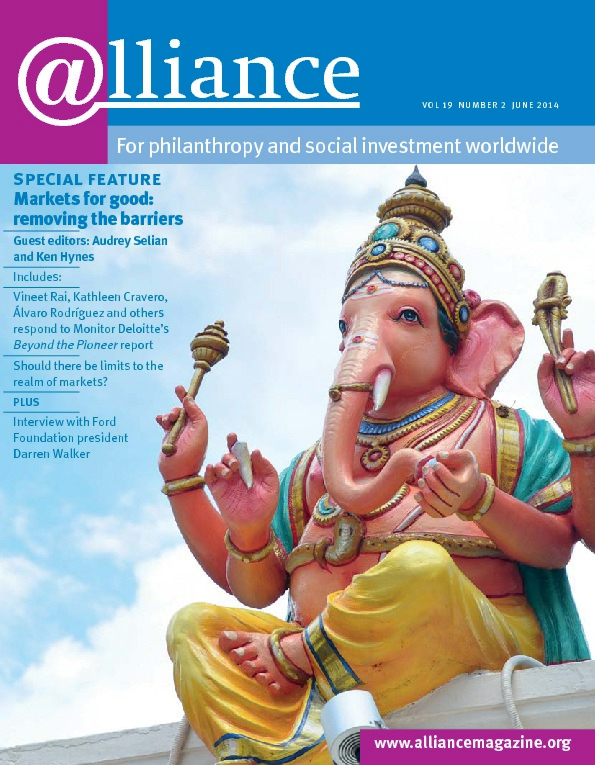The world is flying to Myanmar. Roughly four years ago the military regime governing the country entered into economic and political liberalization after decades of inhumane repression. In February alone, three major philanthropic networks travelled to Myanmar to investigate social investment opportunities on the ground. The Philanthropy Workshop (TPW) was one of them.
Perhaps what makes TPW trips unique is that our goals are to evaluate contexts, models and the full range of programmatic issues. We do not favour any one model. Our travellers engage in critical assessment of all aspects of development and often come away from our trips with more questions about a country than before they went.
(Pictured: one of the villages in Myanmar that TPW visited, largely inhabited by IDPs from Cyclone Nargis.)
The many social leaders we met in Myanmar fall roughly into two groups. On the one hand, the social activists, individuals and organizations who have been at the forefront of sporadic street protest and other forms of agitation, having endured long periods of political imprisonment. Their presence is a constant reminder that the regime cannot be trusted.
The other group, those working on innovative solutions and approaches, was more interesting to TPW. These social entrepreneurs are working in many areas: conflict reduction, environmental protection and mobilization, agriculture and poverty alleviation. In almost all cases, they reminded us of some key tenets of effective philanthropy: one must take the long view, use all the resources available, and be innovative.
Taking the long view
For years before military rule, Myanmar’s ethnic states have conducted a quasi-independence movement to protect their resources and identity. Since the 1960s, one woman we met has worked to bring an end to the many parallel conflicts among these groups and the regime. The recent liberalization has allowed her to take the innovative approach of requiring all states and the regime to work out a national ceasefire arrangement in place of the traditional bilateral agreements between the states and the regime, which tended to create more conflict. Her quiet backroom facilitation is striking in a place where charismatic voices are best known. She describes the current liberalization as an inflection point in the conflict, but there is still much work to be done.
Using all of your resources
We also met several organizations that have worked silently under the veil of government education programmes to train villagers to protect their resources – the soil, river flows and forests. While the government has allowed this for its own benefit, granting these organizations access to remote villages, the result of hundreds of trainings over the past few decades has been to make village communities fully aware of their rights and the mechanisms for protecting the land they cherish. For the security of these organizations and their leaders, I am unable to name them, but they have trained up village leaders and others to work with bureaucrats and some quasi-legal entities to ensure that their resources are protected. The upside of this effort is a growing democratic culture in remote areas of Myanmar and greater protection of the environment.
Innovating for change
Of all of these groups, our members were most impressed with Proximity Designs, an organization that designs products for people living in extreme poverty. They use a human-centred design approach to develop pumps and other agricultural products, working with farmers, living in their communities, having in-depth conversations and piloting products. Our group was struck by the immediate impact that Proximity’s products have on the farmers they met. Farmers are generating vastly increased yields on their land with more time to take their products to market.
The road ahead
Life has changed for everyone living in Myanmar, though the exact outline of these changes remains shrouded in fog. What we learned, however, is that the opportunities to make effective social investments are vibrant and range from grants to loan guarantees. While the banking system is challenging, all the individuals and organizations I mention above (and many others) have found ways to circumvent these challenges. Our group would encourage you to take a look at Myanmar – it is an amazing country. A good first step would be to get in contact with Partners Asia, one of the intermediaries that helped us find organizations for our visit to Myanmar.
Glen Galaich is chief executive officer, The Philanthropy Workshop.
Email glen@tpw.org






Comments (0)